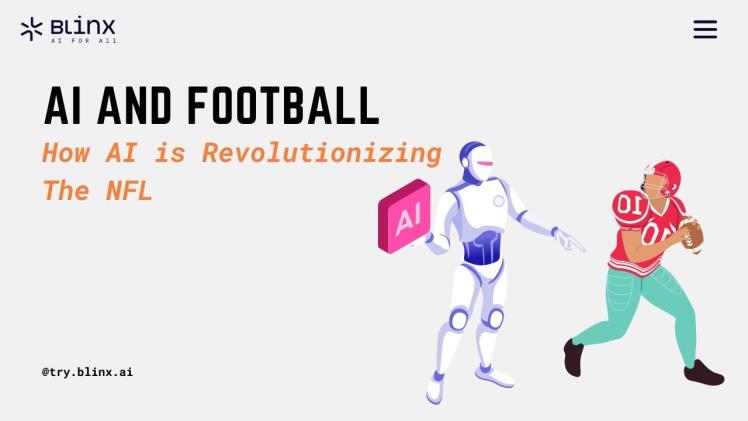Revolutionizing Football Predictions: How Artificial Intelligence is Changing the Game

Artificial Intelligence (AI) has been making waves in the field of sports predictions, and football is no exception. With the vast amount of data available on teams, players, and matches, AI algorithms are able to analyze and make predictions with a high degree of accuracy. In this article, we will explore how AI is being used to make intelligent soccer predictions and examine the potential benefits and drawbacks of using this technology.
One of the most popular ways that AI is being used in football predictions is through the use of machine learning algorithms. These algorithms are able to analyze large amounts of data on teams, players, and matches, and make predictions based on patterns and trends that they identify. For example, a machine learning algorithm might look at a team’s past performance, the skill level of its players, and the conditions of the match (such as the weather or the stadium), and use this information to predict the outcome of the game. Visit here for more descriptions of Exipure
Another way that AI is being used in football predictions is through the use of natural language processing (NLP) techniques. These techniques allow AI algorithms to understand and analyze the language used in news articles, social media posts, and other sources of information about football teams and matches. For example, an NLP algorithm might look at the tone and sentiment of news articles about a team, and use this information to predict the team’s performance in upcoming matches.
One of the key benefits of using AI in football predictions is its ability to analyze large amounts of data quickly and accurately. This can help to improve the accuracy of predictions, and can also save time and resources compared to manual analysis. Additionally, AI algorithms are able to identify bet of the day, patterns and trends in the data that may not be immediately obvious to human analysts, which can help to uncover new insights about teams and players.
However, there are also potential drawbacks to using AI in football predictions. One major concern is the potential for bias in the data and algorithms used. For example, if an AI algorithm is trained on data that is biased towards certain teams or players, it may make predictions that are not representative of the true outcome of a match. Additionally, AI algorithms may be susceptible to “overfitting,” where they perform well on the data they were trained on but poorly on new data.
Another potential drawback is the lack of transparency in the predictions made by AI algorithms. Because these algorithms are so complex, it can be difficult for human analysts to understand how and why they are making certain predictions. This can make it difficult to assess the accuracy of the predictions and to identify and correct any errors that may occur
.
Despite these potential drawbacks, the use of AI in football predictions is likely to continue to grow in popularity. As more data becomes available and AI algorithms become more sophisticated, we can expect to see even more accurate and informative predictions being made. Additionally, the use of AI in football predictions can help to improve the overall understanding of the game, and can even help to identify new trends and insights that can be used to improve the performance of teams and players.click here for more info from Bible Verse
In conclusion, Artificial Intelligence is revolutionizing the way football predictions are made. Using machine learning and natural language processing algorithms, AI can analyze large amounts of data quickly and accurately, and make predictions based on patterns and trends that it identifies. While there are potential drawbacks to using AI in football predictions, such as the potential for bias and lack of transparency, the benefits of using this technology far outweigh the drawbacks. As data and AI algorithms continue to improve, we can expect to see even more accurate and informative predictions being made in the future.




